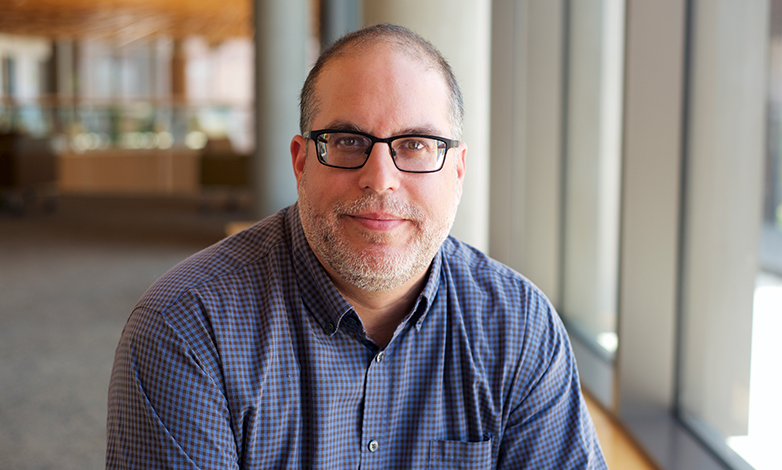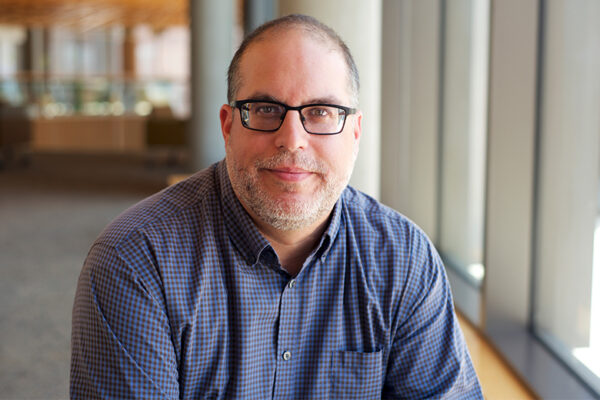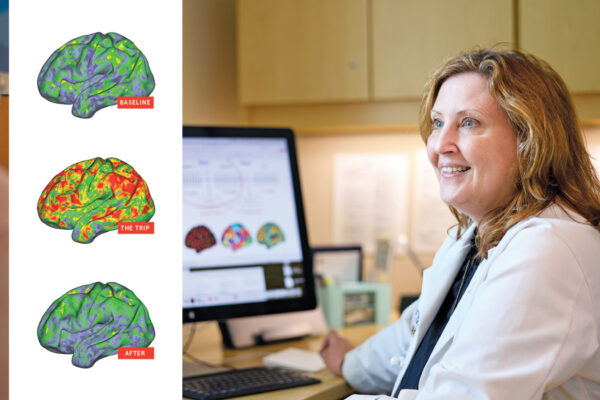A Brown School training program that helps educate and support mental health researchers and scholars will mark 35 years of continuous funding at the end of its latest grant extension.
The Brown School training program in mental health services research has received a five-year $2.4 million grant extension from the National Institutes of Mental Health (NIMH), part of the National Institutes of Health (NIH), building on 30 years of sustained federal support.
“Our goal is to prepare trainees with the knowledge and skills to meet the most pressing needs in social work and mental health services,” said Leopoldo Cabassa, a professor and co-principal investigator on the grant. “This work is especially vital as many of these services face ongoing funding challenges.”

Cabassa said the program has never been stronger, thanks in part to the range of cutting-edge, NIH-funded research projects led by its faculty.
The program is one of just 95 current NIMH-supported Institutional Research Training Grants (known as T32 programs) across the country. These competitive grants offer advanced research training for predoctoral and postdoctoral scholars.
Since its launch in 1995, the Brown School program has trained 73 predoctoral and 23 postdoctoral fellows for academic and research careers.
“We’ve built a strong track record of developing leaders in mental health services research,” Cabassa said. “Our alumni are advancing work in key areas like implementation science, mental health disparities, youth mental health and treatment access.”
One of those alumni is Danielle Adams, now an assistant professor in the College of Health Sciences at the University of Missouri-Columbia.
“This program played a critical role in preparing me for a tenure-track position and shaped my research in powerful ways,” Adams said. “During my postdoc, I was encouraged by Dr. Cabassa to pursue a new line of work in psychedelic-assisted therapy — something that’s since become a core part of my research focus.”
She added that the program’s emphasis on mentorship and collaboration was just as influential. “The regular grant writing workshops with other fellows were especially valuable,” she said. “They helped me develop both confidence and practical skills in securing research funding.”
The program was originally led by Enola Proctor, now a research professor at the Brown School. Cabassa took over in 2018 and co-directs the initiative with Byron Powell, an associate professor and also a program graduate.
“The need to expand access to evidence-based mental health care has never been more urgent,” Powell said. “As someone who was trained in this program as a PhD student, it’s especially meaningful to now help lead it. I’m honored to work alongside Leo and other outstanding colleagues to train the next generation of researchers who will advance the science of mental health services and implementation — and, in doing so, help strengthen systems of care and improve public mental health.”
“We’re proud to be the only NIMH-funded T32 program based at a school of social work that focuses exclusively on mental health services research and implementation science,” Cabassa said. “Our trainees gain the skills needed to improve care for people with mental health conditions — especially those navigating multiple service systems, like health care, social services or schools.”
Each year, the program trains two predoctoral and two postdoctoral fellows, offering mentored, interdisciplinary experience across five critical domains: mental health services research; research with populations affected by poverty and disease; intervention research; implementation science; and advanced research methods.
“While we’ve built on a strong foundation, we’ve also pushed the program forward in new ways,” Cabassa said.
Recent updates include new courses and mentors in implementation science, systems science, health disparities research, and advanced data analytics. The program also expanded networking opportunities, including site visits to NIH-funded research projects around the country.
“We’ve also created new mentoring roles for early-career faculty and continued to emphasize science communication skills, so our trainees can share their work effectively and broaden its impact,” Cabassa said.


